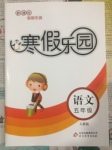题目内容
1.I’m looking forward to being a (诗人)in the future.
2.Tom was (选举)chairman of the Students’ Union.
3.Every one of them makes an (努力)to study English well.
4.Your plan is good in (理论), but does it work in practice?
5.He works as a newspaper (编辑)
6.I’d like to see more (科学)methods used.
7.She’s very (耐心)with her children.
8.The boy was punished for his (缺席)from class.
9.It is impossible to (预测)what will happen in the future.
10. (介绍)are unnecessary since you all know each other.
1.poet 2.elected 3.effort 4.theory 5.editor 6.scientific
7.patient 8.absence 9.predict 10.Introductions

 寒假乐园北京教育出版社系列答案
寒假乐园北京教育出版社系列答案
|
Take Action for a Better World: Volunteers Needed Six months’ preparation in Denmark: Africa studies, team work combined with social work with risk group teenagers. Six months’ community work in Malawi in People to People Projects: Child Aid, HIV / AIDS. Fights and Teacher Training. Qualifications: 18 years, hard working and social engagement. Please contact us by e-mail: takeaction@ betterworld.com. |
|
Part-time work with Exchange Students YOUTH International is a non-profit high school foreign exchange students organization. We welcome teenagers from over 80 countries worldwide and provide host families. The community Representative is a part-time position designed for people with a strong desire to do something rewarding in the community and earn some extra money. Applicants best suited for this work should enjoy teenagers, have a strong interest in cross-cultural communication and feel comfortable networking. Full training and support will be provided through branch offices throughout the US. Positions available in most states. If interested, please email staff@ youth.org or call 888—123—9872. |
|
International Summer Job Hi, I’m an ESL student in China. I’m 20, quiet and polite, and I speak reasonable English. I’m looking for a summer job in an English-speaking country. I can teach Chinese or do house and garden work and cook Chinese dished. Can anybody offer me a job? I don’t need to earn much, just enough in two months (July—August) to pay for my return ticket to China. My goal is to improve my English and see a bit more of the world. My email is: ram3462@ hotmail.com. |
|
Call for Native Speaker of English I am looking for native speakers of English to join in an experiment. This experiment is carried out over the Internet. You don’t need any specific knowledge other than understanding and speaking English at a native level. The first task will take you around 15 minutes. After this task, you can decide whether you want to continue the experiment. The tasks involve reading texts and designing questions and answers. If you are willing to help me, then please email us: club3864@ hotmail.com |
1.Who is suitable to work as a Community Representative in YOUTH International?
A. One who enjoys working with teenagers from different countries.
B. One who hopes to take action in fighting against diseases.
C. One who has a strong desire to improve his or her English.
D. One who wants to earn some pocket money in the program.
2. Where will jack, a volunteer, receive the training before he is sent to work in Malawi?
A. In some local offices in the US.
B. In an ESL organization in China.
C. In a preparation program in Demark.
D. In an exchange student center in Africa.
3.Mrs. Black in the US hopes to learn some Chinese at home, she may contact _______.
A. takeaction@betterworld.com B. ram3462@hotmail.com
C. club3864@hotmail.com D. staff@youth.org
4. What are volunteers for an experiment over the Internet supposed to do?
A. To interview people online. B. To do some housework.
C .To offer advice on Child Aid D. To provide language exercises.


